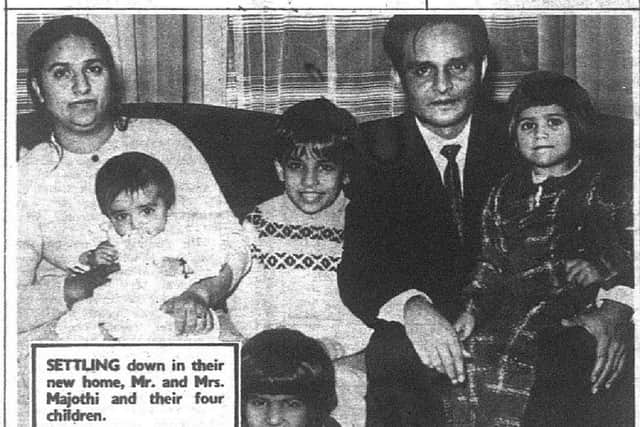Milton Keynes woman forced to flee Uganda by Idi Amin 50 years ago tells her inspirational success story
and live on Freeview channel 276
In August 1972, Ugandan dictator Idi Amin, the leader of Uganda, gave the order that all Asian people living in Uganda had 90 days to leave the country.
This triggered the massive movement of more than 60,000 Ugandan Asians, who sought refuge in countries all over the world.
Advertisement
Hide AdAdvertisement
Hide AdMany held British passports and almost half of the displaced population came to the UK over the months that followed to start new lives, leaving behind their homes, businesses and livelihoods.


One of these was Dil Dossa, who arrived at Stanstead airport with her family on November 2 1972. She was just four years old and the only possessions she and her family had were the clothes on their backs.
"Idi Amin provided a 90-day notice. This created panic and confusion for everyone who was affected. For those who classed Uganda as their home, they were left feeling stateless and homeless with no idea of what the future would hold for them,” she said.
"For my family, Uganda had been home for us for nearly four generations and we were entrepreneurs. We’d arrived from Gujarat, India in the late 1800’s by the British Empire.”
Advertisement
Hide AdAdvertisement
Hide Ad“My grandfather, who had served in the British Army, was given UK citizenship. This citizenship provided my father with the opportunity to get the necessary paperwork to leave Uganda. He queued outside the British Embassy for days during the period where there was clear danger and more military presence than ever previously seen.”


From the airport, Dil’s family was taken to Army barracks in Somerset, where they stayed for three months until they found a place to resettle. The family found a home Bury in Lancashire and began learning to adjust to the strange new life.
“Our parents said that the UK is now our new home, and we should embrace the culture and the new way of living. As siblings we were encouraged to speak English in the house. as the UK had given us a second chance to restart our lives,” recalls Dil.
Both her parents were East African born, as were their parents before them, she said.
Advertisement
Hide AdAdvertisement
Hide Ad“Like many in the 1970s we experienced some racism, but on the whole many people who understood our journey helped us integrate into this society.”
Dil worked hard at school and in 1988 she moved to Milton Keynes. Here, she was highly successful in setting up a career in IT and now runs her own two local companies, an IT Consultancy and a coaching and mentoring business.
"I do class MK as my new home and have seen it grown over the past 24 years,” she said.
Last week, the death of the Queen was particularly poignant for Dil, who lives with her daughter.
Advertisement
Hide AdAdvertisement
Hide Ad“As the world evolves and changes we still see conflicts occurring on the planet. It was Her Majesty the Queen, together with her government, who provided us with refuge, homes, clothes, and jobs for us to restart our life - something we will never forget.
“My parents raised us to respect the monarchy and government. As we mark the 50-year anniversary of the expulsion from Uganda it is yet another moment in history as we have now lost HRM The Queen.”
One of Dil’s treasured memories is a newspaper cutting from the Bury Times in February 1973, showing a photo of her with her parents and three siblings.
"I’m the one sitting on the floor between mum and dad with the horrible haircut!” she says.
Advertisement
Hide AdAdvertisement
Hide AdThe newspaper quotes the family as being “impressed by the friendly attitude of the local people”.
Dil’s father, Abdul, told the reporter: “Everyone has been very nice to us and Bury seems a nice place to live although it has been very cold.”
A national commemorative event will take place in London on 18 September 2022, 50 years after the first evacuation flight from Uganda landed at Stansted airport.
The event is being organised in collaboration with British Ugandan Asians at 50, an initiative supported by the National Lottery Heritage Fund.